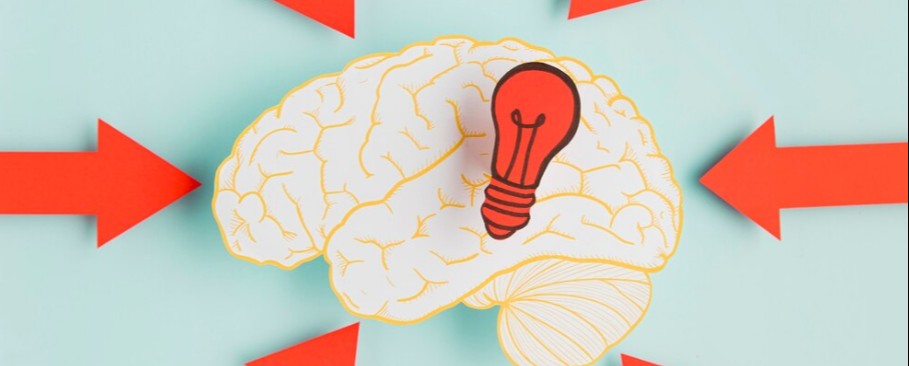
A Guide to Children's Mental Health

A Guide to Children's Mental Health
Just like their bodies, children's minds are constantly growing and developing. While scraped knees and sniffles are readily addressed, a child's mental health can sometimes go overlooked. Yet, ensuring their mental and emotional well-being is just as crucial for a happy and fulfilling life.
Talking to Your Child about Mental Health
Imagine if we treated a broken arm with shame. That's how some view mental health concerns. Explain to your child that mental health is just as important as physical health. Just like needing glasses to see clearly, sometimes we need help managing our thoughts and emotions. They might not have the vocabulary to express this emotional turmoil. Initiating conversations about mental health creates a safe space for your child to share their worries and seek help.
Here are some tips:
Start Early: Mental health discussions don't have to be heavy. Integrate them into everyday moments. Talk about your own feelings and how you manage them. Normalize emotions as a natural part of life.
Use Age-Appropriate Language: Tailor your communication to their age and understanding. For younger children, you could use stories about characters dealing with similar issues. For older children, use open-ended questions and active listening to encourage them to express themselves.
Focus on Validation: Avoid minimizing their feelings with phrases like "it's nothing" or "get over it." Acknowledge their emotions by saying "It sounds like you're feeling overwhelmed" or "That situation must have been difficult for you."
Prevention and Self-Care:
Just as a healthy diet and exercise are essential for physical health, self-care practices can nurture positive mental well-being. Here are some ways to foster these in your child:
Establish Routines: Consistent sleep schedules, mealtimes, and playtime create a sense of security and predictability.
Encourage Physical Activity: Exercise releases endorphins, natural mood boosters.
Promote Healthy Eating: Foods rich in vitamins and minerals contribute to brain development and function.
Practice Mindfulness: Teach them relaxation techniques like deep breathing and meditation to manage stress.
Limit Screen Time: Excessive screen time can disrupt sleep and contribute to anxiety.
Equipping Them with Coping Mechanisms
Teach your child healthy coping mechanisms for stressful situations. Mental health conditions can arise from a variety of factors, not as a result of something your child did wrong. Reassure them that seeking help is a sign of strength, not weakness. Life throws curveballs, and children need tools to handle challenges. Here are some coping mechanisms to introduce:
- Problem-Solving Skills: Encourage them to brainstorm solutions and work through difficulties on their own.
- Journaling: Expressing thoughts and feelings in a journal can be cathartic and help them process emotions.
- Creative Outlets: Activities like art, music, or writing can be healthy ways to manage stress and express emotions.
Mental health challenges are not a reflection of your child's character or a choice they made. Reassure them that it's okay to not be okay. Focus on their strengths and offer unconditional love and support. Let your child know their feelings are valid, even if you don't understand them. Phrases like "It's okay to feel sad/angry/scared" can go a long way.
Communicating About Mental Health:
- Encourage open communication. Let them know you're always there to listen, without judgment. Schedule regular check-ins where they can freely express any concerns they might have.
- Talk Openly: Don't shy away from the topic of suicide. Ask them directly if they are having thoughts of harming themselves.
- Express Your Love and Concern: Assure them you care deeply and want to help.
- Seek Professional Help: Don't hesitate to reach out to a therapist or mental health professional who can provide them with the support they need.
Children's mental health is a vital aspect of their overall well-being. Just as we prioritize physical health, it's equally important to foster mental wellness from a young age. However, discussing mental health with children can be challenging. By offering support, understanding, and open communication, children can navigate their emotions and challenges effectively.
Articles
Build your awareness and get inspired with our researched articles on how you can strengthen your well-being
Popular Topics
An OTP has been sent to the email address
provided.
Please check your Inbox and Spam folders.

What Would You Like to Speak with a Specialist About?
Mental Fitness Journey starts Now!
Chearful Connects you with Top-tier Qualified Wellness specialists for the Price of a cup of Coffee!

Next Steps
- A Client Team member will reach out to you to schedule a session with the most suitable specialist.
- You will receive an email with a 10% Discount Code* for your 1st session.
- We invite you to Explore the Platform & Sign Up today! *Upto a maximum of $10 discount on a session purchased




 2073 Read
2073 Read















































